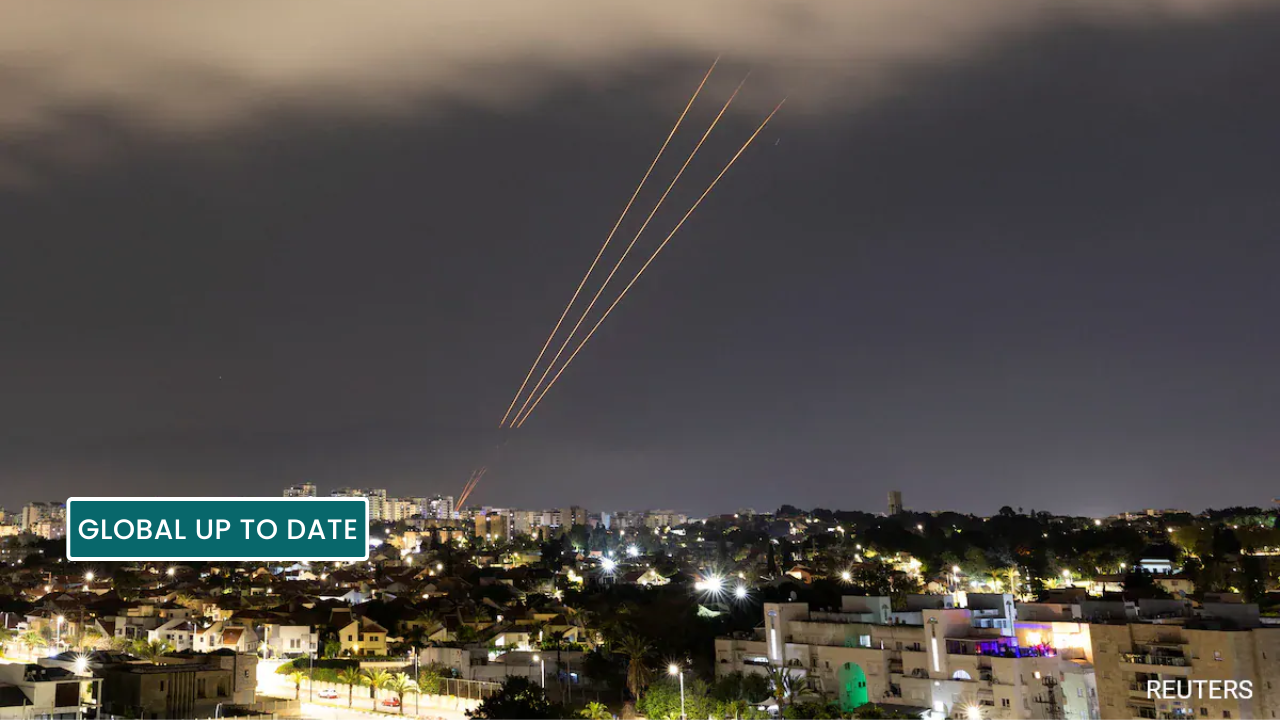Is the Middle East Heading Towards an All-out War?
Nuzhat Tabassum | 15 April 2024
Israel and Iran have been engaged in a shadow war for decades and only now they have confronted each other directly. Israel has attacked Isfahan, a province in Iran in response to Iran’s direct attack on Israeli soil which was a retaliation for the bombing of an Iranian consulate in Damascus on April 1 which killed two top Islamic Revolutionary Guard Corps (IRGC) advisers.
According to Israel, the consulate was a military building of the Quds forces disguised as a civilian building. But Iran regarded it as an attack on Iranian soil and on 14th April made its counter-attack on Israel. Iran’s attacks were directed toward military infrastructures and was designed to minimize casualty but maximize spectacle. Similarly, Israel’s attack on Iran was limited and was designed so that the conflict would go no further. Isfahan is an important province in Iran. The attack carried the meaning that Israel could attack the beating heart of Iran at any time. Even though Iran has said they will retaliate more intensely if Israel decides to attack; so far, Iranian officials are downplaying the significance of the attack and has indicated that it has no plan to retaliate.
Israel made a mistake by attacking the Iranian consulate in Syria. Since the start of the war in Gaza in October, the international community has vehemently criticized the actions of Israel. Recently, the US abstained from vetoing a UNSC resolution that called for an immediate ceasefire in Gaza, hinting that the US is frustrated with Israel’s action. President Netanyahu's promise to bring back the hostages that Hamas took on October 7 has not been fulfilled yet. Even Israelis are tired of Netanyahu’s actions with no result and are demanding a new election to remove Netanyahu’s government. He will not be able to sustain himself for a long time due to international and domestic pressure. By attacking Iran’s consulate, Israel is trying to divert the attention from the war in Gaza and domestic problems to a regional one. It will also bring the US to rally behind Israel to diminish Iran’s Islamic government for good. A broader conflict will be beneficial for him and will support the claim that the October attack was not only a terrorist attack but rather a bigger confrontation and campaign.
Israel gained more from the recent events. There were already talks of a strained relationship between Israel and the US. Iran’s attack on Israel has changed the situation and now everyone is talking about their strong friendship. Israel has attracted Western sympathy to rally behind itself. Iran’s attack also diverted the attention of the UNSC. Instead of discussing a ceasefire in Gaza, the UN will discuss Iran’s threat and Israel’s right to defend itself. Also, Iran has put itself in front of Arab attention to rediscuss on stopping Iran’s nuclear program. Experts have also said that the attack has inaugurated a regional defense coalition against Iran. It is a strategic win for Israel. Additionally, it will pressure the Republican Party to proceed swiftly on an Israel aid bill. On the other hand, the position of Iran is not good. Its economy is not in good shape due to sanctions and growing discontent inside the country for its repressive policies. Iran’s attack allowed Israel to go after its nuclear establishments. Israel is trying to impose sanctions on Iran’s missile projects and declare IRGC a terrorist group.
It is now on Iran if they want to respond to Israel’s attack. But for both Israel and Iran, the war will be costly. But a war now is destructive for the Middle East as a region. It could destabilize a volatile region even further. The material and humanitarian costs will haunt the region for generations. Rather, the focus should be on the ceasefire to stop the war in Gaza and ensure the flow of humanitarian aid into Gaza as soon as possible.
Nuzhat Tabassum is a Research Intern at CGS
The views expressed in these write-up are solely those of the author and do not necessarily reflect the policies of CGS.
